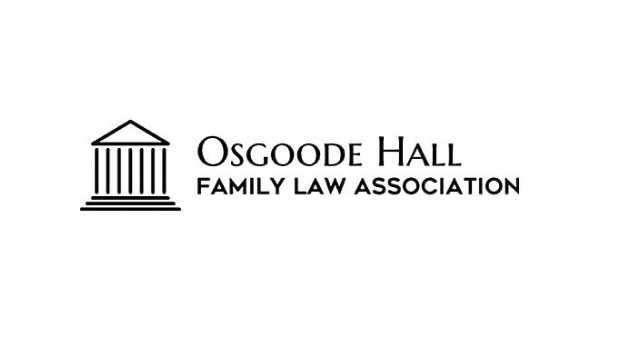
The normalization of prenups

Written on behalf of the Osgoode Family Law Association.
As 1L students studying contract law for the first time, we immediately took notice of the intersection between contracts and family law in discussions surrounding the court’s general avoidance of enforcing agreements within the private sphere. Namely, general verbal agreements are typically deemed promissory agreements between individuals. As Lord Justice Atkin states in the 1919 Balfour v Balfour decision, they are promises stemming from “love and affection which counts for so little in these cold Courts.” The courts’ general reluctance to intervene in private relationships disadvantages couples by leaving them without legal safety nets in regards to any unwritten agreements they may have had prior to their marriage.
The good news is that this issue has a very simple solution. The bad news is that it’s a solution that is generally villainized by social norms. The P-word.
Prenups and postnups are agreements between couples prior to or following their marriage. A large purpose of marriage agreements relates to the protection of financial assets acquired prior to marriage or assets attained during the marriage. They prompt open communication and trigger conversations relating to finances and their future as a couple and as their own individuals.
The Ontario Family Law Act, 1990, recognizes and permits entry into these agreements. To get a prenup, each individual must get their own independent legal advice regarding the drafted prenup before signing it. Thus, both individuals know exactly what they are agreeing to. Furthermore, Section 56(4) of the Act protects individuals by setting aside the contract if certain provisions are proven.
The alternative to not having a prenup leaves the couple open to the provincial laws relating to divorce and the subsequent division of assets. Couples entering a marriage may be deterred by the social understandings around prenups that may suggest a lack of trust in one another or in their relationship. However, a prenup essentially serves to protect both parties in a marriage with respect to their unity and longevity.
However, despite the protection that these agreements provide, prenups do not have the best reputation. The assumption is that many couples marry with the intention that “This is it”; the person you are marrying is “the one.” No one wants to get married with pre-emptive thoughts of “What if this all falls apart?” Marriage is full of promises: promises to love another person unconditionally, and to be there for them for better or for worse.
But the more we get at the underlying legal essence of what a marriage “promise” is—a legal contract—the more we can get past the normative values superimposed onto marriage which may bar couples from exercising their freedom to contract under the law.
Our relationships with other people and commercial enterprises are constantly being governed by contract law. Every morning before class, we enter into a “coffee” contract with the local shop around the corner. We live in a contractual society where we already normalize the way contract law operates to define relationships. We do not see why marriage contracts cannot be subject to the same treatment.
It is worth mentioning that marriage contracts clearly have more of a significant impact on one’s day-to-day life than, say, a “coffee” contract. We do not dispute that marriage is a monumental moment for couples choosing to build a life together. However, the bottom line of the agreement is not so different such that marriage contracts necessarily ought to be treated on a distinct normative level as opposed to other contractual agreements. Moreover, bringing marriage contracts down a notch may be pragmatically beneficial for many couples who were socialized to shy away from protecting themselves through prenuptial agreements.
Today, divorce is becoming an increasingly common aspect in our society, almost as common as marriage. According to Statista, about 2.78 million Canadians in 2022 obtained a legal divorce and did not remarry in Canada. And (maybe not so) shockingly, almost 50% of marriages in the United States end in divorce. The more we normalize the reality that many marriages end in dissolution, the more we can put prenuptial agreements on the table as viable and important options for couples to consider in order to protect themselves, their assets, and their loved ones.
Given that marriage is a life-changing event, would we not all want to be as equipped as possible for this huge life change? And even if the answer is no, there should be an opportunity for people to consider all of their options. Although marriage itself may not entirely escape the value-judgment of the normative sphere, prenups should not be isolated subject to the same treatment which leads them to be reflexively shunned by many without serious thought.
In fact, prenups may be a useful tool in preserving the longevity of marriage. Prenups allow couples to put serious issues on the table in an orderly and structured way, where the aim is to ensure that both parties have a mutual understanding of the terms and conditions of the agreement. Finances are one of the most common causes of marital arguments, and prenups can be a way of getting potential financial disputes out of the way from the outset before couples decide to unify their lives, making financial issues much more difficult to disentangle. Prenups are more than just assets: They are a way for couples to discuss liabilities, children’s moral upbringing, retirement, and estate planning when they negotiate a prenuptial agreement.
A marriage agreement/prenup is just a contract, and it should not be socially restricted to a negative context. It is a protection of the individuals involved and their future. Entering into such an agreement means that the couple will continue to have one another’s backs by making sure that they do not leave their futures to the uncertainties of time. Marriage should be taken for what it is: A contractual agreement based in good faith and the protection of the individuals involved.
